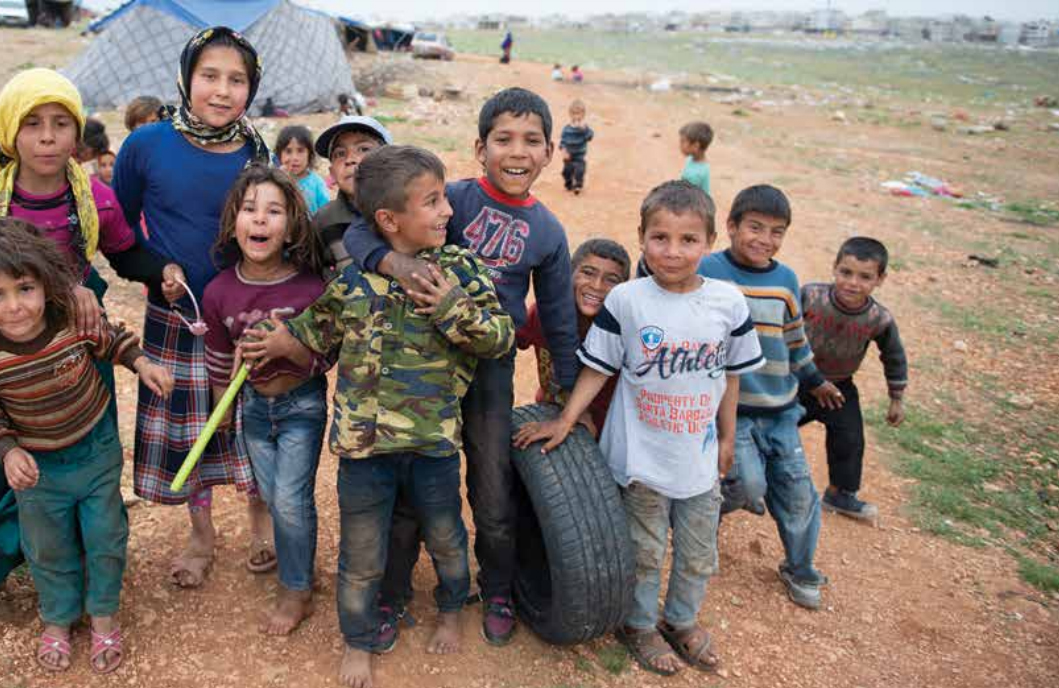In this article, we will present the Policy Coalition that was established within the ARISE: Action for Reducing Inequalities in Education project in Turkey.

Photo credit: Kırkayak Kültür
The importance of the policy dimension in the ARISE project has already been presented, as well as the Policy Coalitions (PC) established in AL, BA MK and SR.
In Turkey, ARISE Consortium member, Education Reform Initiative (ERG) followed an invitation process for forming the Policy Coalitions that enabled them to reach a representative sample of experts, academics, and NGO professionals who can contribute to the discussion on disadvantaged children and their access to education. For this reason, an invitation letter was sent to persons with a wide range of backgrounds. For example, members of the PC consist of academics with a focus on refugee children, experts and NGO professionals focusing on child labour, disabled children and inclusive education, grassroots organizations and fieldworkers working with disadvantaged children, school principals and teachers employed in disadvantaged areas, as well as a social impact researcher.
National context
As discovered in the national report, the difference in the quality of education among schools is one of the major problems in the national context of Turkey. This difference is mostly shaped by socioeconomic disparities whereas schools in disadvantaged regions and neighbourhoods have less successful results and insufficient access to proper school environments in comparison to other schools. Frequent rotation of teachers, as another obstacle to equity, is widely seen in schools in disadvantaged areas. Moreover, as preschool education is costly and not compulsory, low SES students have some difficulties in accessing preschool education. Additionally, the central exam for secondary schools reproduces the already existing socioeconomic differences among students and leads them to end up in homogeneous environments.
Although there are legal documents to ensure non-discriminatory practices in schools, ability/disability, age, gender, race, ethnicity, and language can be used as a basis for discrimination and exclusion among students. Even though the legal documents assure the access of disabled children to education, not all disabled children can access education. The number of disabled children dramatically decreases in secondary education.
Additionally, Turkey also allocates the lowest proportion of public resources to education among OECD countries that prevents required investments to ensure the access of all children to quality of education. The centralized decision-making process is another obstacle that hinders the agency of school principals and teachers to make decisions at the school level and to adjust their school environment accordingly.
Setting the Goal
Since ARISE partner Grassroot organization (GRO) Kırkayak Kultur works with Dom and Abdal children whose parents are overwhelmingly seasonal agricultural workers, the key issue discussed in the introductory meeting was the access of seasonal agricultural workers’ children to education. The participants from Kırkayak Kultur explained their experiences during the fieldwork. Although the children of seasonal agricultural workers have the right to be enrolled in schools wherever they are, some human-based factors hinder it. For example, one of the members of the PC explained that the school principals do not accept these students to be enrolled in their schools, because other parents in schools do not want Dom and Abdal children to be with their children. This is one of the most striking types of evidence of discrimination that Dom and Abdal children face with.
Other participants highlighted the need of thinking of inclusive education broadly that includes all children in a school environment. Therefore, it is discussed that the experience of all participants from different areas on inclusive education can support the access of Dom and Abdal children to education.
Finally, the main policy goal was set: Increasing the access of Dom and Abdal children to school. Even though the legal framework shows commitment to assure it, the Dom and Abdal children of seasonal agricultural workers are mostly deprived of their right to access to education and face discrimination even when they reach school environments.
Steps forward
Members of the PC in Turkey will continue to work together with ERI on further developing the Policy Road Map based on the inputs from the Regional Policy Lab in Zagreb. Meanwhile, here are the impressions from some of them about the support to children from vulnerable groups:
Gözde Durmuş, Istanbul Bilgi University Children's Studies Unit:
“There are inclusive education modules produced for different projects but these are not permanent for teachers and administrators. Separate modules are produced for girls, refugee children, and special education under different projects, but this does not make the inclusive education approach for teachers and administrators integrated. There is a need to have an integrated approach to inclusive education” .
Çetin Çelik, Koç University Sociology Department:
“We can focus on issues such as the “refugeeization” of agricultural labour and turning temporary agricultural labor into permanent”.
Emrah Kırımsoy, Children's Rights Activist:
“There is a lack of social workers in schools, this deficiency is currently covered by psychological counsellors in schools. One of the issues we can discuss may be the lack of social workers that will flag the children in need of support” .
Make sure to follow the ARISE web page and our social media channels (FB, TW) so you don’t miss the updates on the progress of reaching the policy goals set by Policy Coalition in Turkey!
